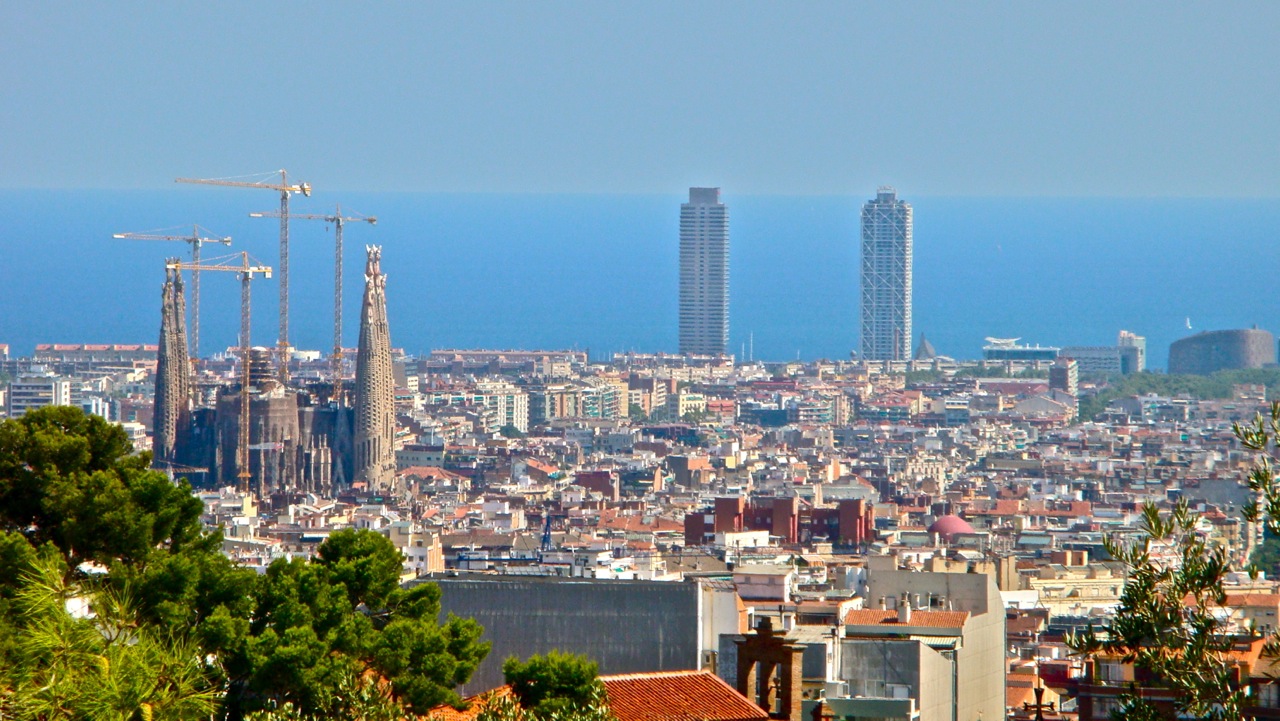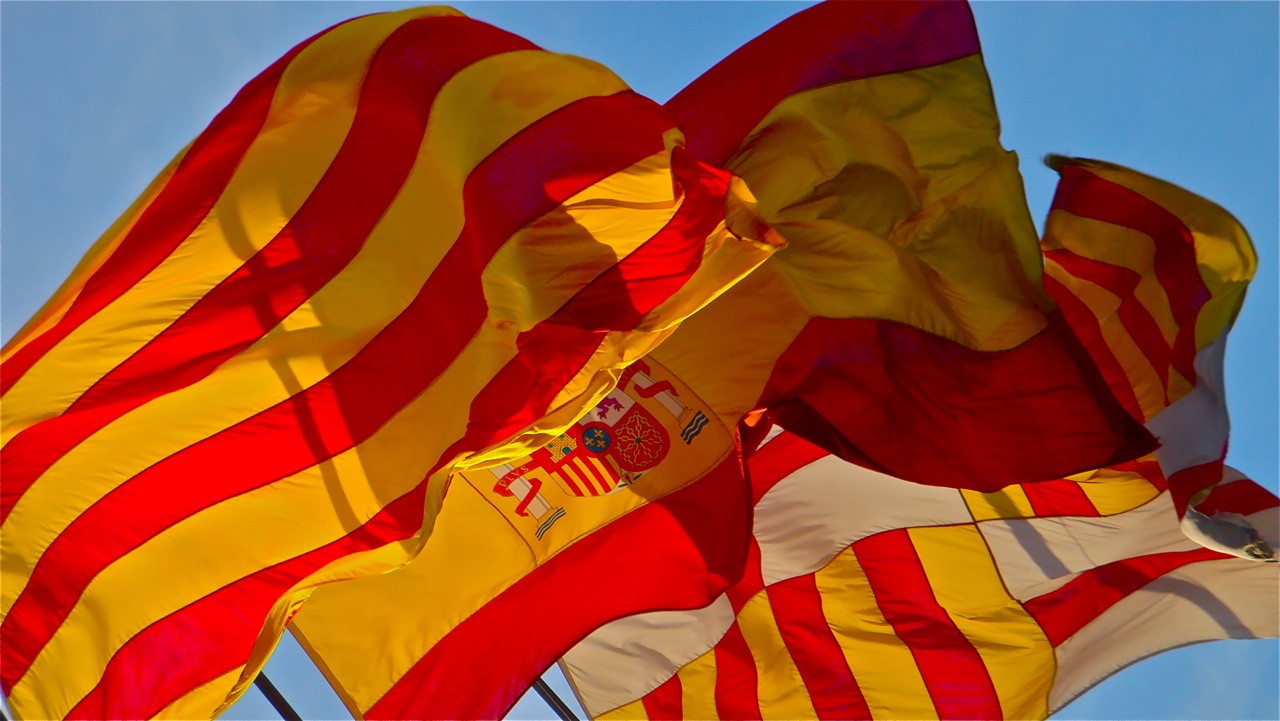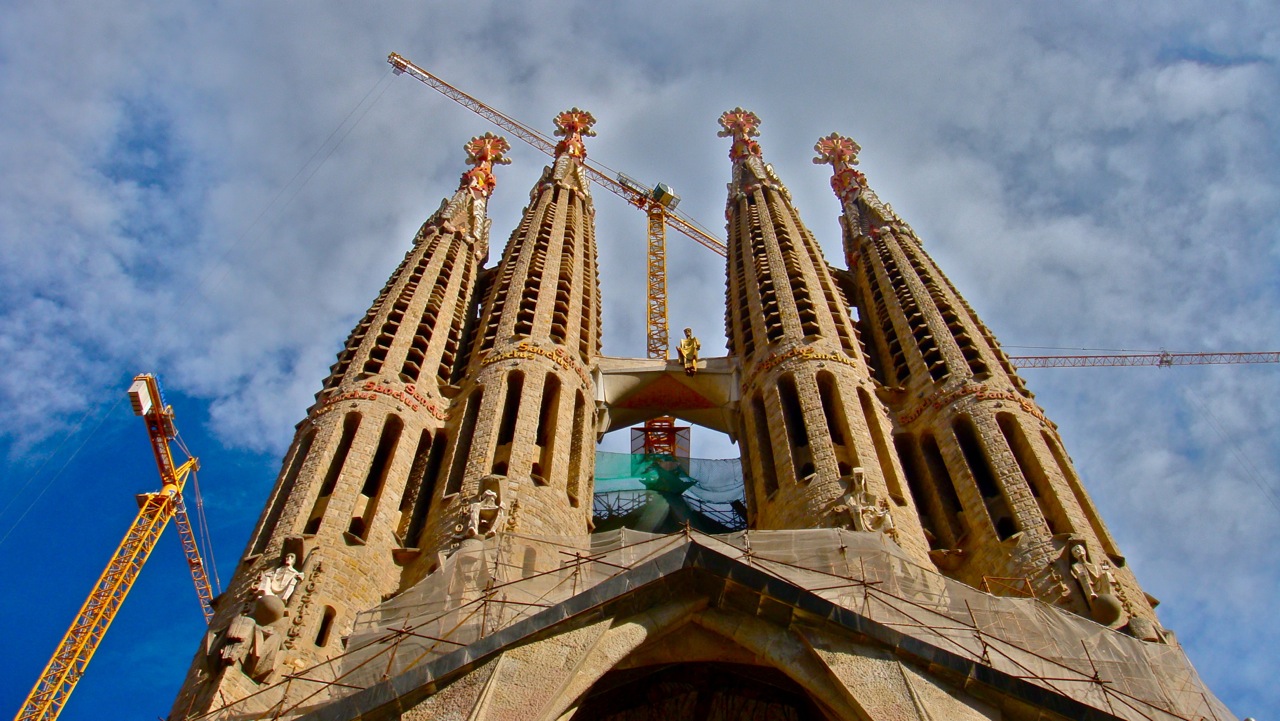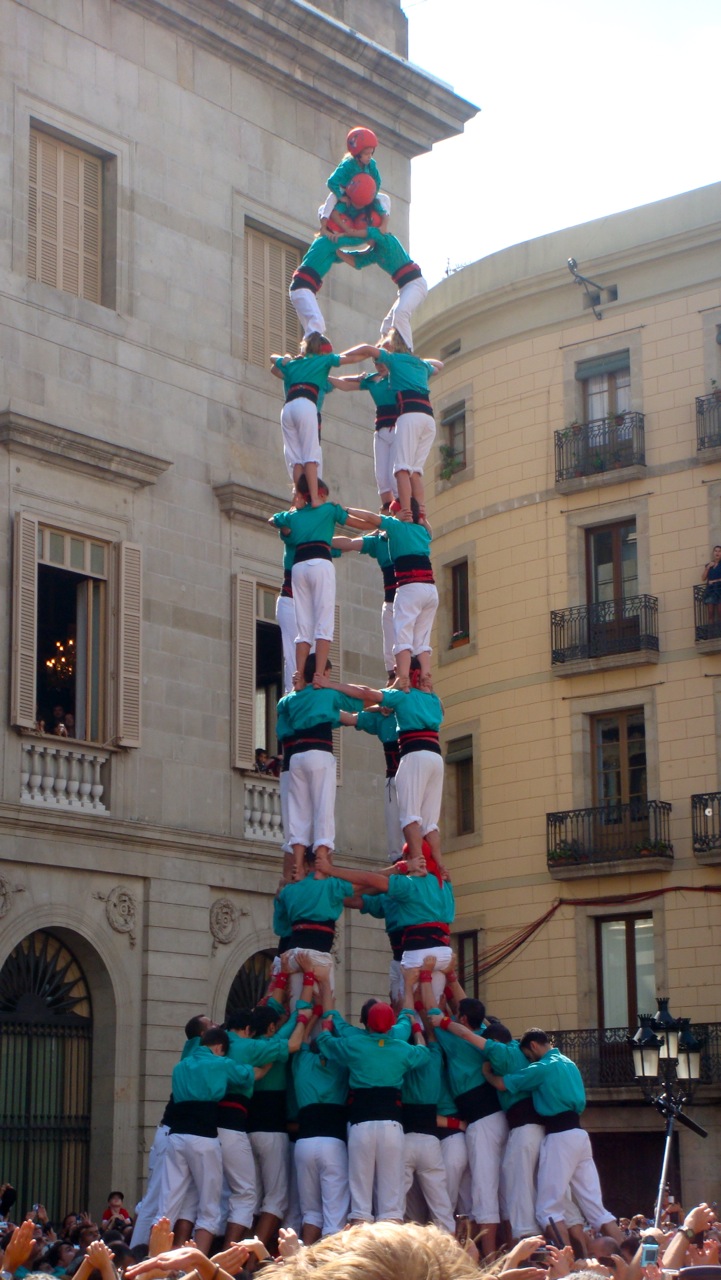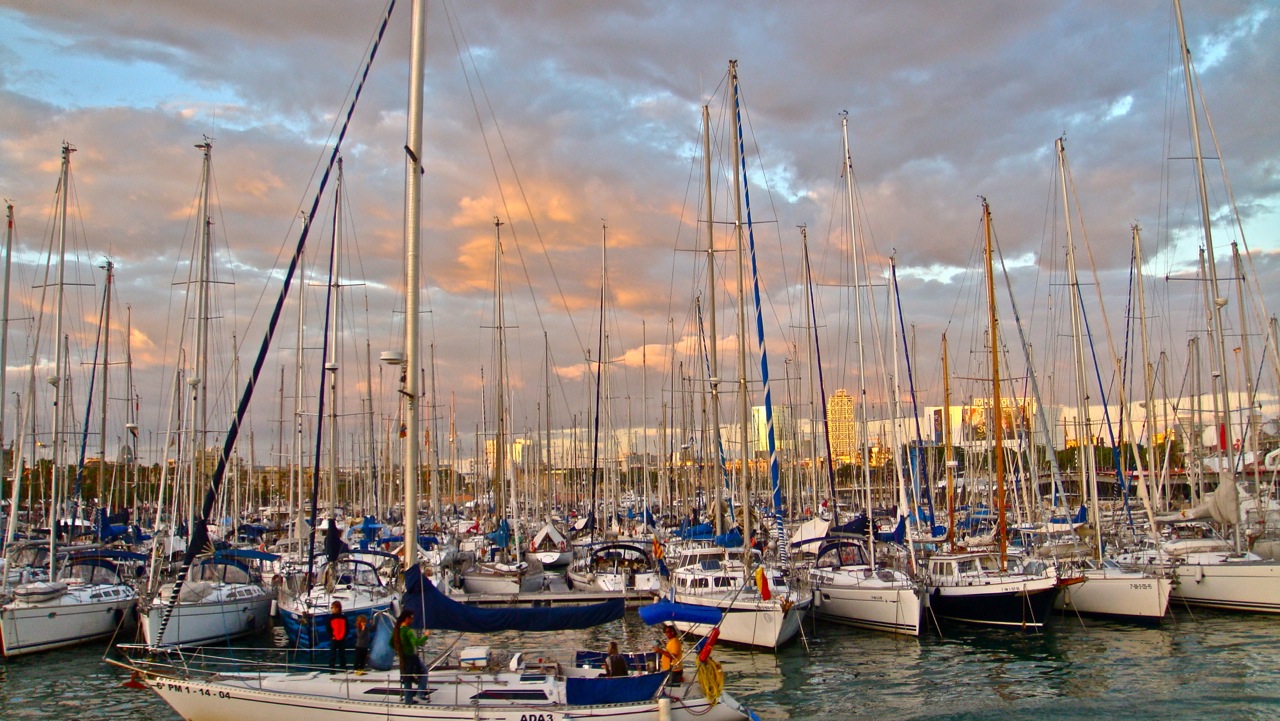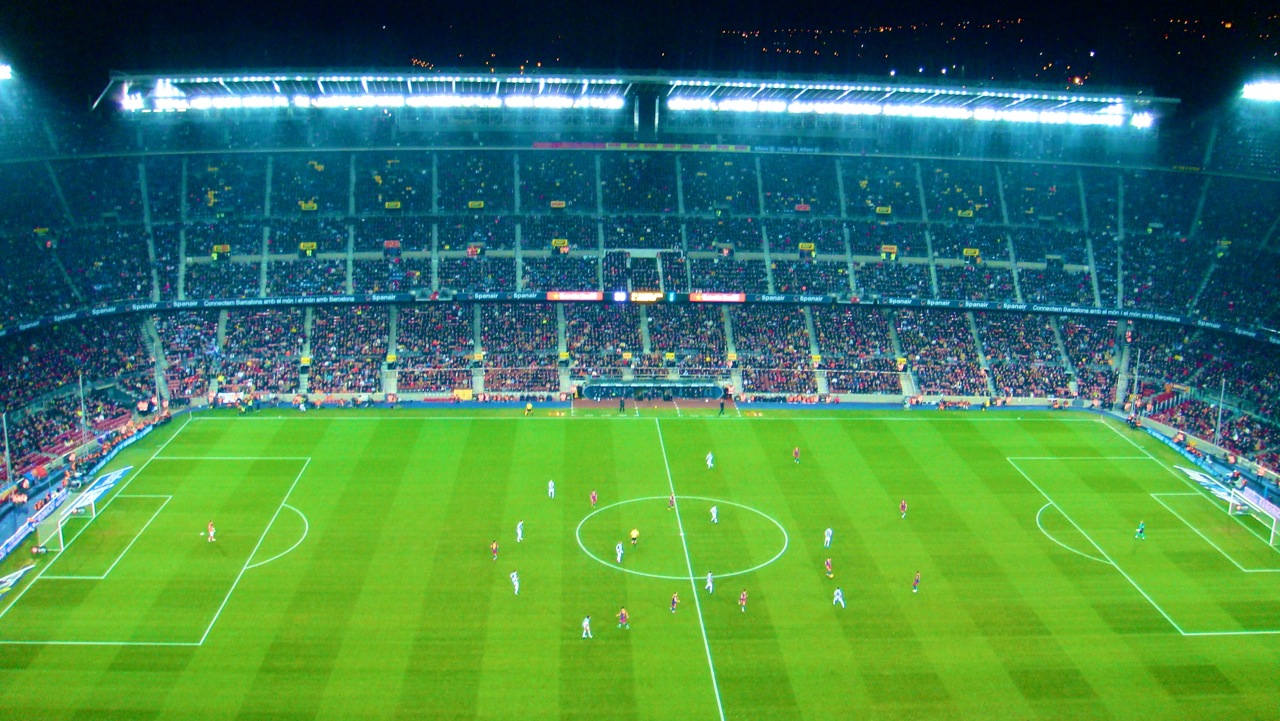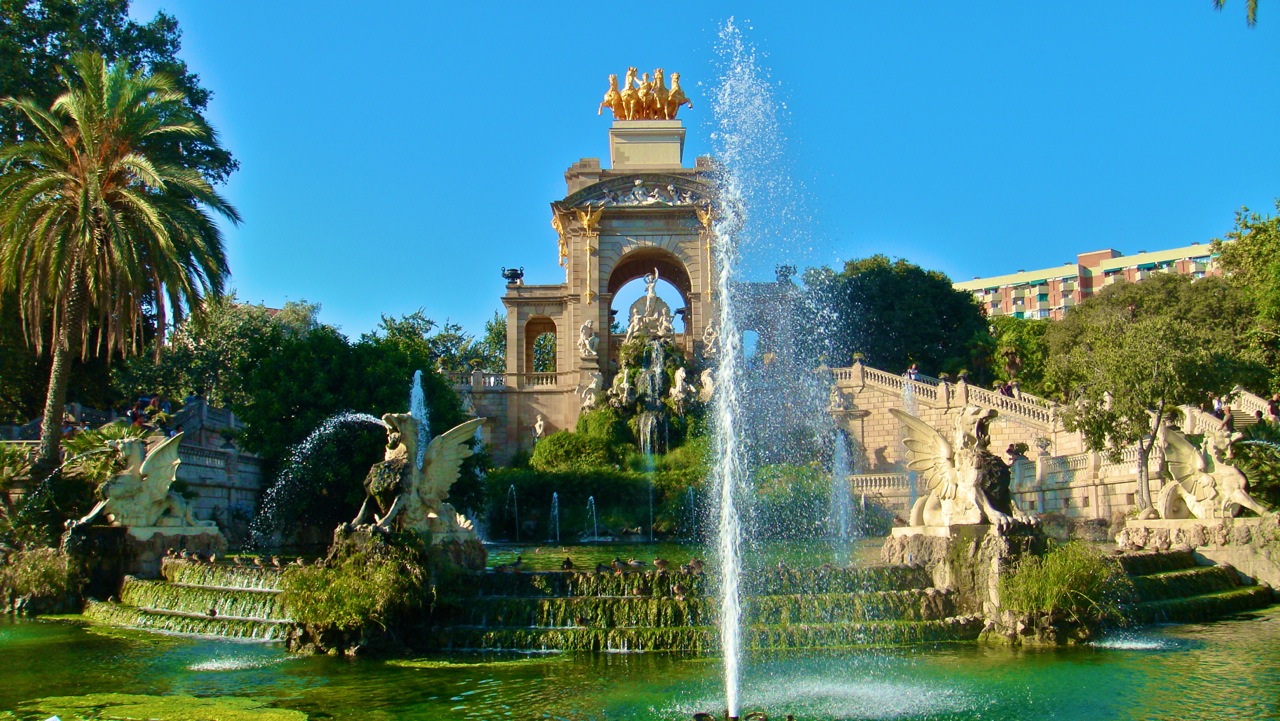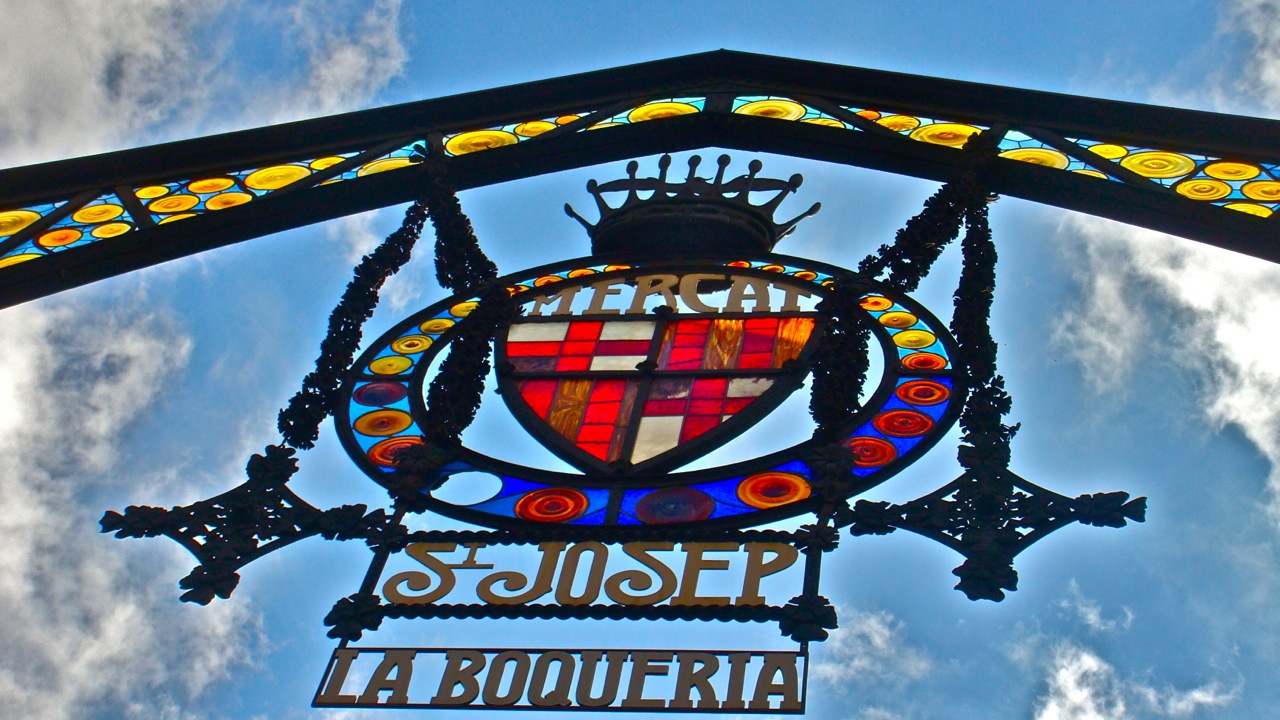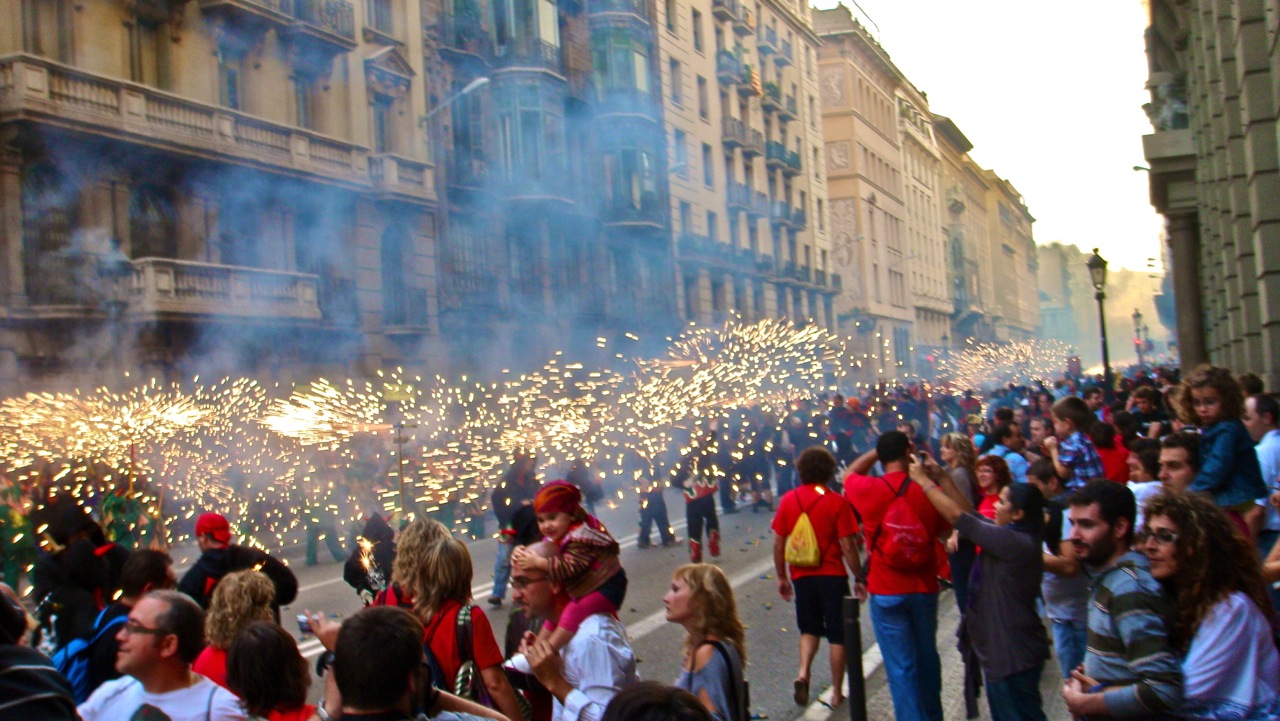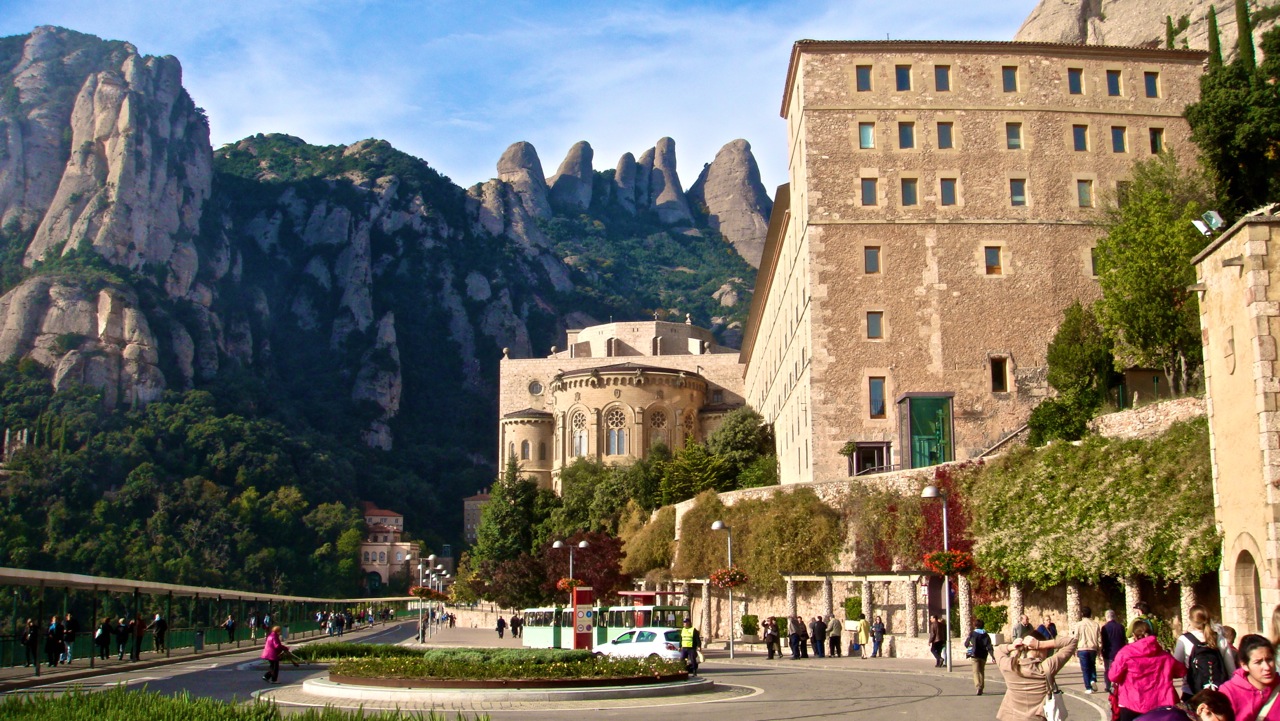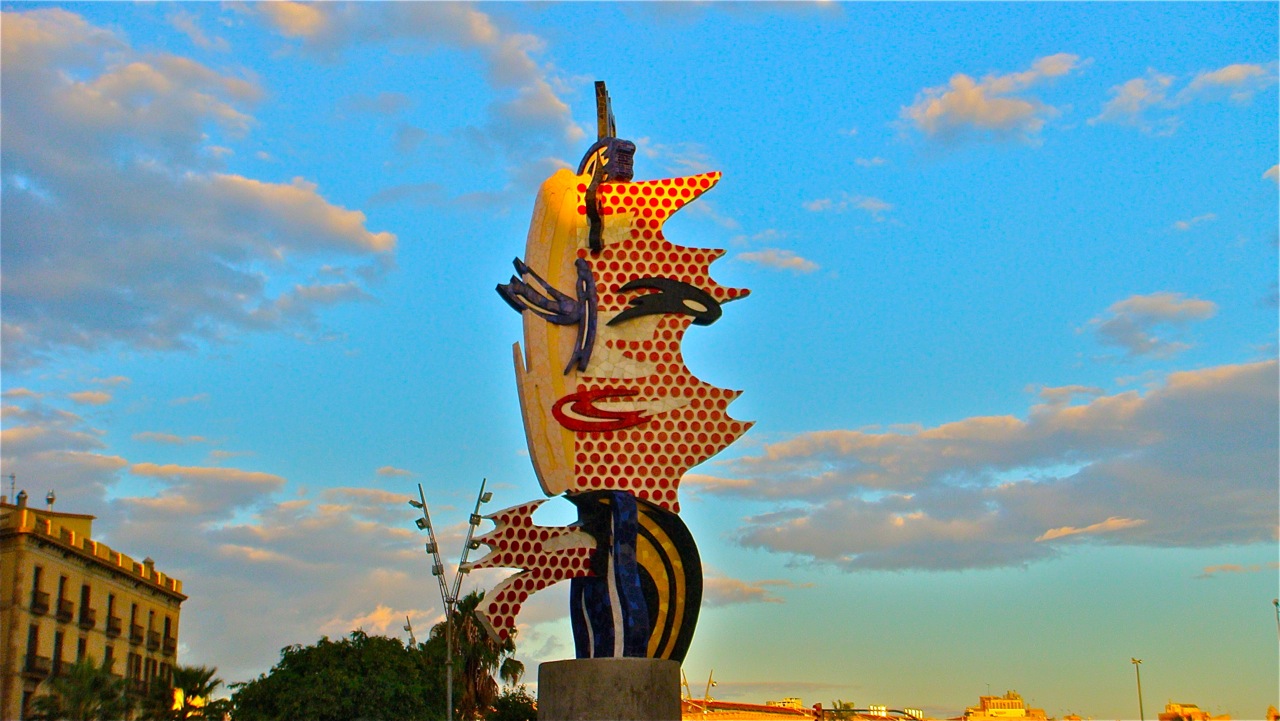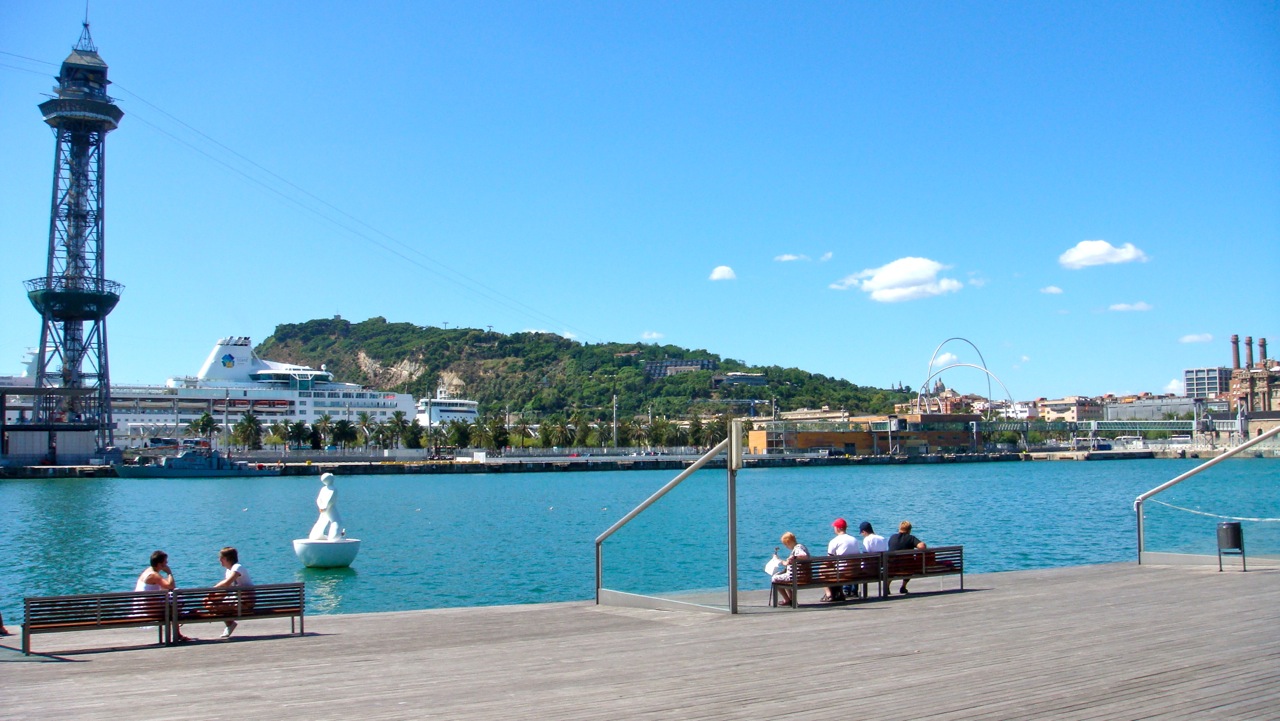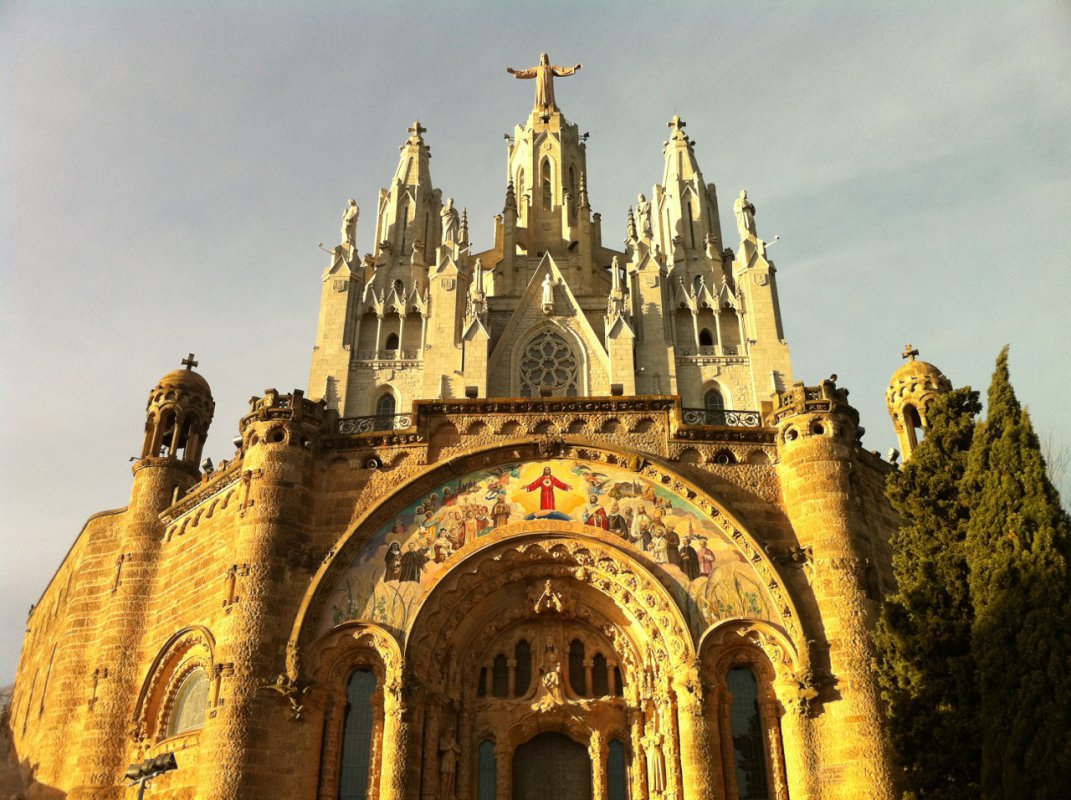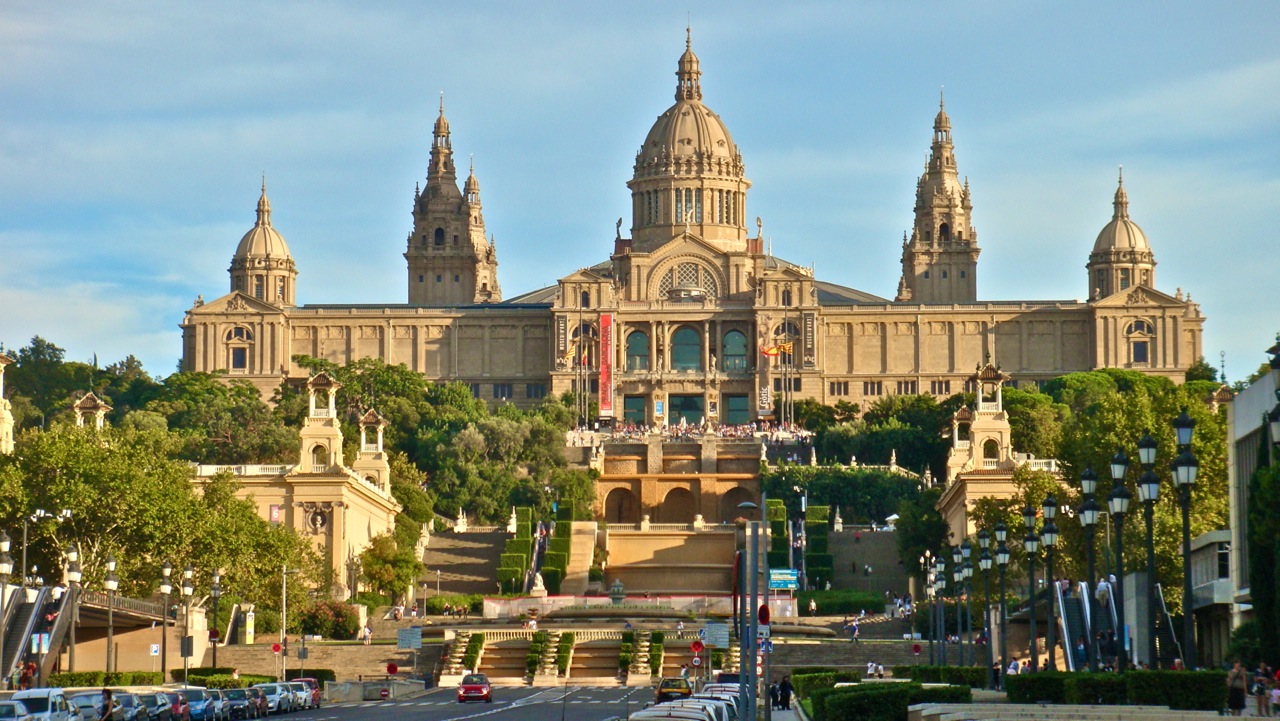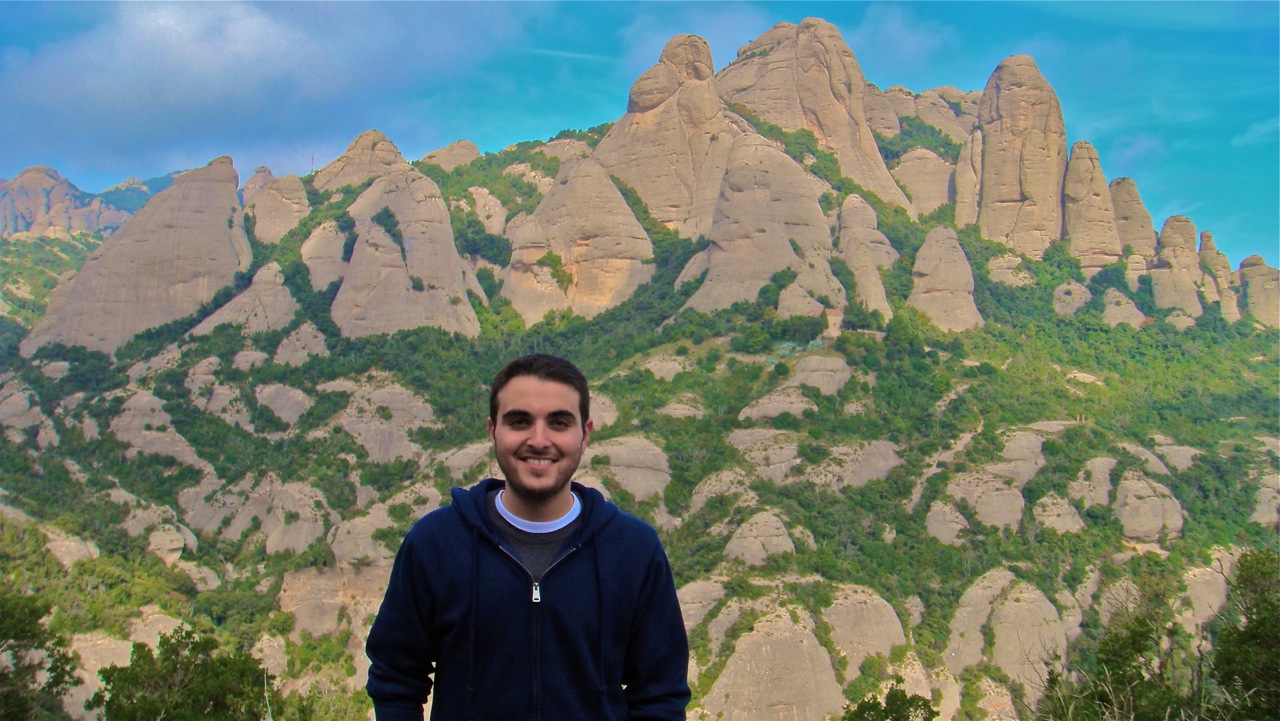
Top Five Reasons to Select the Program
- The City: Barcelona is simply amazing. I cannot emphasize this enough. It is nestled between the Mediterranean Sea and a small mountain range. The geographic diversity of Barcelona allows you to enjoy both the beach and the mountains in the same day. Barcelona's weather is very pleasant. During the fall semester, most days are around 75 degrees Fahrenheit, and it rarely rains. The public transportation system is extensive, clean, affordable, and extremely reliable. There is an endless list of things to do and see including Barça soccer games, concerts, museums, food festivals, shopping, and strolling the Ramblas. Finally, the architecture of many of Barcelona's buildings will always leave you staring up in amazement.
- The Classes: The IES Barcelona Program allows you to take classes at several local universities, as well as the IES Center, which is an ultra-modern building right off the central plaza of the city. Depending on your Spanish language proficiency, you can choose to take all your classes in Spanish, or simply take the one required language class. Most courses, from economics to film studies, center their themes on Europe, Spain, Catalonia, and international issues. This allows you to learn about the area while you live there. The wide range of classes allowed me to take two classes for my Media Studies major, two for my Spanish minor, and one to fulfill a social sciences distribution requirement.
- The Food: Paella, sangria, and a multitude of tapas are just some of the foods you will try in Barcelona. The Catalan region has a reputation for producing some of the most highly regarded chefs in the world. The locals take food very seriously. Markets can be found in every neighborhood of the city, and the largest one, La Boqueria, is one of the most important in Europe.
- The Trips: Because of its central location, it is very easy to travel from Barcelona to the rest of Spain and Europe. Madrid is only 3 hours away by high speed train, and the French border is only a 90 minute journey. I participated in several trips organized by IES Abroad including Valencia, Costa Brava, Montserrat, and the Garrotxa volcanic region. Low cost airlines such as Ryanair, Easyjet, and Vueling also make it very affordable to discover other European cities on weekends.
What I Wish I Would Have Known Before I Went
- Catalan is the co-official language with Spanish in Barcelona. All signs, posters and metro announcements are in Catalan. No worries, everyone is bilingual and will almost always speak to foreigners in Spanish, also known as Castellano.
- Meal times in Spain are drastically different than in America. For starters, the Spanish have five meals a day. Many small businesses close between 2 p.m. and 5 p.m. so that families can eat the main meal of the day together, around 3 p.m. Dinner is usually served around 9 p.m. or 10 p.m.
- Get used to the word "vale" pronounced "bale." It means OK, and you will hear people repeating it over and over in affirmation of nearly anything. This was new for me since it is rarely used in the Latin American Spanish I was used to.
- Do not tip! When at restaurant or paying taxi fare, tipping is not customary. Due to this, restaurant service is not nearly as good since waiters are not trying to get a good tip.
- Credit cards are not used nearly as much as in America. While they can be used in most places, most people still prefer to use cash, known as "en efectivo."
- Most grocery stores and shops are closed on Sundays.
- Plan to stay in town during the Mercè festival leading up to September 24. This is the city festival of Barcelona. There are fireworks and concerts each night. Special parades, food festivals, human towers, and the "correfoc" fire run are celebrated during this time.
A Funny Story or Situation
If There is Food, They Will Come
After one of my classes, a Catalan teacher of mine informally asked the class for advice on how to encourage the other American students to attend an extra-curricular seminar he was organizing. Immediately, we all told him that he should provide food after the seminar. He was completely flabbergasted at the notion. For Spaniards, food and mealtimes are sacred. Work and social activities are usually separated. The idea of eating lunch at one's desk would produce equally negative reactions. In fact, food and drink are not even permitted in the IES building. We explained to him how almost all activities at our universities are advertised with free food. He remained very skeptical of the idea, but said that he would ask the director. He ended up ordering food for the event and it was very successful.
An Embarrassing Situation
A Chair Is Not A Stamp
When visiting the small town of Cadaques, north of Barcelona, a friend of mine wanted to buy some stamps to send postcards to family back home. In Spain, the tobacco shops all sell stamps. We entered the shop and I started rehearsing in my head how I would ask for these stamps. I remember learning the word for stamp, but the exact word wasn't coming to my mind at the moment. Somehow I convinced myself that the word for stamp was "silla," even though I knew perfectly well that this means chair. I walked up to the cashier and said confidently, "vendes sillas aqui?" He looked at me rather puzzled and pointed me toward the furniture store across the street. At that moment, the correct word for stamp immediately popped into my head and I asked him again. "Perdon, sellos." He immediately understood and pulled out a book of stamps. I was so embarrassed, but I have found that these situations indelibly mark certain vocabulary words in your head. Embarrassment is the best cure for forgetting a word.
The Teacher From Whom I Learned the Most
There were two classes which I enjoyed very much. Media and Politics in Europe taught by Dr. Carles Roca was fascinating because it covered the media structure of many European countries and the level of their politicization. I was also able to learn about the extensive European public broadcasting systems, and was able to attend a field study at the Catalan Audiovisual Council.
Food as an Expression of Culture, taught by Dr. Camila Loew, was also a great class. Through a combination of field studies to local markets, cooking classes, and discussions of issues such as national cuisine and food culture, I was able to gain a great understanding of the importance of food to many cultures.
Housing
I lived in a homestay with a widowed woman and her grown son. She treated me as if I was part of the family. Once, when I became sick, she insisted on accompanying me to the doctor, and cooking special meals for me. Living in a homestay was a great experience because it allowed me to practice my Spanish on a continual basis (she did not speak one word of English), and observe how local people live and work. Additionally, whenever I didn't understand something, or needed directions somewhere, she was happy to help.
She provided a delicious breakfast and dinner each day, and always tried to introduce us to new dishes and share local traditions. My host mother was extremely cognizant of providing the highest quality food to us. She was completely against anything frozen and made everything from scratch. She also explained to us how she selected only the highest quality meats and produce from the local markets that she visited most days. Cooking for us, and sharing local dishes, was what she took the most pride in. She would anxiously wait for our reactions each night after we tasted the meal that she prepared.
My host family had two bedrooms specially renovated with large closets to host students. My roommate and I also had our own bathroom, which was also recently renovated and very modern. My host mother even did our laundry each week! Most host families have long relationships with the IES Barcelona Center. My host family, for example, has been hosting students each semester for the past five years.
The location of my homestay was also very convenient. Due to Barcelona's extensive public transportation system, my home was only a block away from the nearest metro stop. It took me about 20 minutes to get to the IES center for classes each day. The IES center is located just off the main plaza of the city, Plaza Catalunya, which serves as the hub for all public transportation systems.
Some people may be wary of living in a stranger's house, but I can assure you that IES rigorously vets each of the host families before students are allowed to live there. Additionally, there are Resident Assistants who are locals, fluent in both English and Spanish, that work for IES and visit students in their homestays every 1-2 weeks. Resident Assistants serve to inspect living conditions, mediate issues with host families, an help students acclimate to their neighborhood. Safety inspections of homestays also regularly occur to ensure that conditions are compliant with insurance policies.
Student Profile:
|
